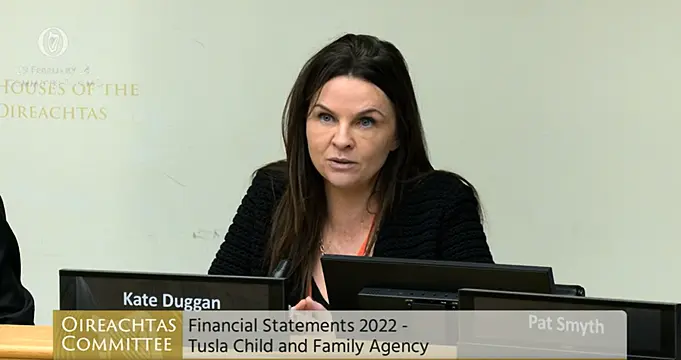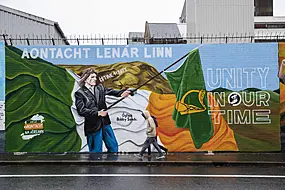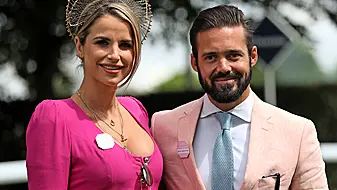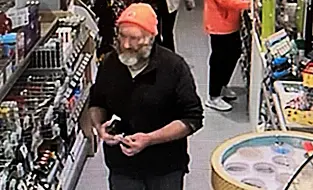Tusla has “stopped engaging with” two for-profit agencies that carry out services for it following an audit, a committee has heard.
The child and family agency told TDs that an issue emerged during an audit and in response it set up a unit to check qualifications in agencies it uses.
Tusla chief executive Kate Duggan said on Thursday that the issue was not pointed out but had emerged “organically” through the organisation’s “double lock” auditing of documentation.
“Within our quality and regulation directorate, we have an internal audit function,” she told the Public Accounts committee.
“So that proactive auditing that we do picked up an issue and then after we thought, we actually can’t just take insurances, we cannot just take assurances from these agencies that they have Garda vetting, that they have qualifications, we have to physically set up a unit that checks every one of these manually.”
She said that there are eight people now working in this unit.
The committee was also told there was a €65 million increase in spending on special emergency arrangements (SEAs) over a four-year period, from fewer than five million to 71 million.
Ms Duggan said that as there was an increase in the needs of children post-Covid, due to the war in Ukraine and global movement of people, which in turn had led to an increase in demand for SEAs.
She said following the “spike” in demand, the agency took “a much more rigorous approach” to SEA providers and its own audit system “picked up concerns in relation to different agencies”.
“Where those concerns were picked up they were evaluated, they were looked at, and where there was any concern that was creating a risk to a child we ceased operation with that company and, if required we referred the matter to An Garda Siochana.”
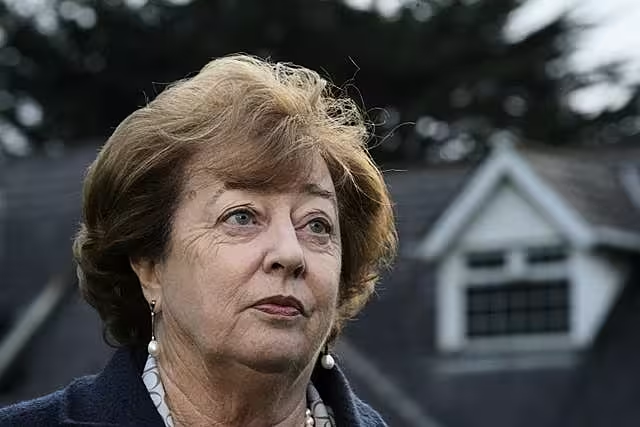
Asked by Social Democrats TD Catherine Murphy how many organisations have been excluded as a consequence of the unit, Ms Duggan said: “There’s two agencies we’ve stopped engaging with.”
Asked if both organisations were operating on a “for profit” basis, Ms Duggan said they were.
Ms Duggan said: “When an agency provides a service for us, they have to give us an assurance that their staff are Garda vetted, they have to give an assurance that their staff are qualified.
“We give out 75 per cent of our funding goes out to community, voluntary and private services. We don’t see a copy of all of the Garda vetting or a copy of all of the qualifications, what we see and what we receive as an assurance.
“Because of the nature of these (special emergency) arrangements been unregulated, we decided to put in a double lock there.
“So the double lock was that on top of seeking an assurance, on top of seeking confirmation, we physically got copies of the Garda vetting, we physically looked for copies of the qualifications.”
She added that this information was received “organically” and was not something they were told about.

Labour TD Alan Kelly told Ms Duggan this was “frightening”, “very scary stuff”, and that the 65 million increase in spending over four years was “incredible”.
Ms Duggan said the increase in spending was due to a “significant” increase in demand for SEAs.
“That has been driven largely by the number of separated children and young people that have presented into this country seeking international protection.”
Ms Duggan said they want emergency provision and agencies that are “registered and regulated”.
“In the absence of that multi-agency response to these young people, what I and the executive are taking so seriously is the level of oversight we put in over these arrangements.
“Every single one of these young people has an allocated social worker, they’re visited in their placement, every one of them have a care plan.”
She added: “Fundamentally, what we need is the interagency piece.”
Ms Duggan also said the agency recognises “we are losing more social workers than we are recruiting”.
“In terms of recruiting, there is a supply issue, we need about 500 social workers qualifying every year in Ireland. Right now there is 200.”
She said that in the last 18 months the organisation has collaborated with third-level institutions, advertised abroad and are working to develop an apprenticeship programme with the Department of Further and Higher Education.
